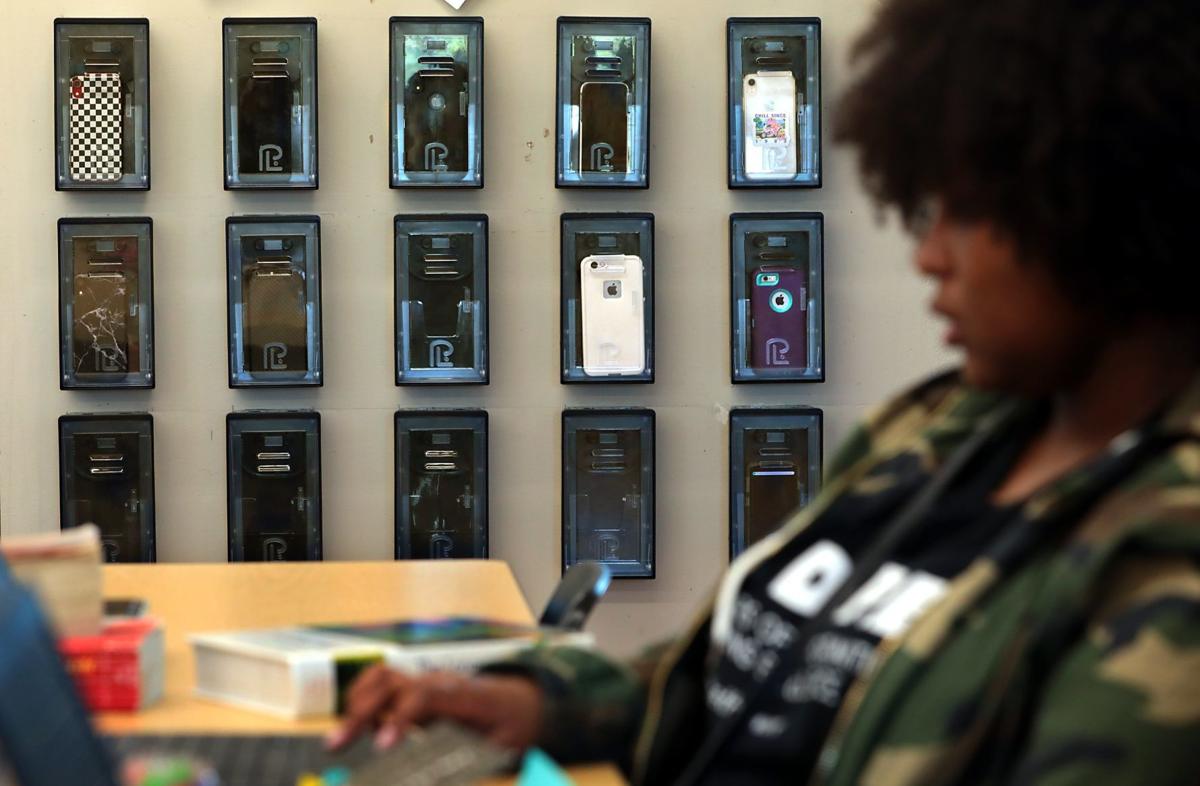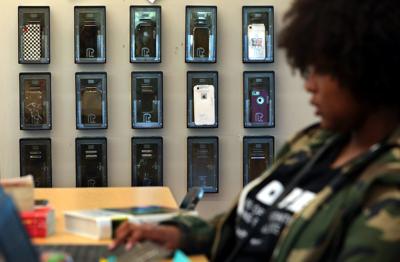JEFFERSON CITY — A teacher-turned-legislator wants Missouri to join a growing list of states that restrict student cellphone use in schools.
Rep. Kathy Steinhoff, a Democrat from Columbia and 34-year public school teacher who retired in June 2022, said classroom engagement became a “real challenge” in the years before she left teaching, adding cellphone use was “probably the biggest factor in that.”
She said as she spoke with her former colleagues, “it sounded like the problem just was continuing to get worse.”
Steinhoff filed a proposal Monday for the upcoming 2025 session that would require public school districts and charters to adopt policies that largely prohibit use of electronic personal communications devices during regularly scheduled instructional activities.
The bill includes certain exceptions to allow phone use during emergencies, when a teacher directs a student to use a phone as part of a lesson, or when the phone is authorized by federal laws such as the Individuals with Disabilities Education Act.
People are also reading…
Florida, Indiana, South Carolina, Minnesota, Ohio and California have all enacted legislation since last year requiring local policies on in-school cellphone use, according to the National Conference of State Legislatures.
Steinhoff’s legislation is similar to requirements in Florida and Indiana that districts prohibit phone use during instructional time, except in certain circumstances outlined in the law.
Ohio and Minnesota have approved more open-ended legislation.
Ohio’s law requires districts to adopt policies that limit phone use and that reduce cellphone-related distractions in classroom settings.
In addition to Florida’s requirement that districts largely prohibit school cellphone use, the state also requires districts to adopt internet safety policies including a prohibition on students using district internet to access social media unless directed by a teacher solely for educational purposes.
“We don’t want the kids on the phone the whole time while the teachers are trying to teach,” Florida Gov. Ron DeSantis, a Republican, said last year. “It’s rude for the teacher. There’s no way you’re learning what you need to be learning.”
“Things like these social media ... it can wait,” DeSantis said. “Honestly it’s not that important to be doing. It’s much more important what’s going on in the classroom.”
A statewide crackdown on in-class phone use in Missouri may find broad support — at least among voting-age adults.
An August survey of likely Missouri voters by St. Louis University and YouGov found 72% support for prohibiting high school students from accessing their cellphones during school hours.
Overall, 15% of respondents opposed the idea and 12% weren’t sure. The sample size for the question was 450 and the margin of error was 5.4%.
Older adults were more likely to support the prohibition, indicating a generational divide on the issue.
About four-fifths of survey respondents 45 and older supported the cellphone restrictions while less than half of 18- to 29-year-olds did.
Many St. Louis-area districts have already begun cellphone crackdowns amid school administrator complaints that the devices hinder learning, and after teachers struggled to get students to fully engage.
Punishments for violating new rules this school year range from verbal warnings to out-of-school suspensions, the Post-Dispatch reported in August.
Pew Research surveys show increasing access to smartphones. Ninety-five percent of 13- to 17-year-olds surveyed last year reported having access to smartphones, up from 73% in 2014-2015.
A Pew survey last year found 38% of U.S. teens surveyed said they spent too much time on their smartphones, and 27% said they spent too much time on social media.
While 74% of teens said they sometimes or often felt happy without their smartphones, 44% said they sometimes or often felt anxious without them.
Steinhoff said her legislation gives districts some freedom and she hopes any new law will allow local control as opposed to a one-size-fits-all statewide ban.
She noted that not all parts of the school day are spent in class, such as passing time, lunch and study hall.
“There are different people that have different ideas about whether students should be able to use cellphones during those times,” she said.
This is the second year Steinhoff is trying to limit phone use in school. As a Democrat, she will need Republican support in the GOP-controlled Legislature.
She may find an ally in state Rep. Ed Lewis, a Moberly Republican and former public high school chemistry and physics teacher.
“I’m contemplating filing something similar,” he said. “I know cellphones are an absolutely huge distraction.”
Some of the notable events throughout 2024 captured by St. Louis Post-Dispatch videographer Allie Schallert.















